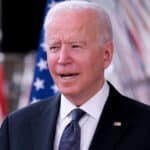Despite her defeat in the 2024 presidential race, Kamala Harris is leading the preference polls for the Democratic nomination in 2028.
The Daily Mail reported that in a recent Puck News/Echelon Insights survey, 41% of Democratic voters favored Harris, placing her well ahead of other potential candidates.
After losing the 2024 presidential election to Donald Trump, Kamala Harris has maintained significant support within the Democratic Party. The survey indicates that she is considered the top candidate for the next election cycle, despite the defeat.
Her closest rival, California Governor Gavin Newsom, garnered only 8% support, highlighting Harris' strong positioning.
Newsom recently met with President Joe Biden, reaffirming their commitment to resist Trump's policies.
The poll reflects a broad field of Democratic hopefuls for 2028, with none coming close to Harris in terms of support. Pennsylvania Governor Josh Shapiro, Minnesota Governor Tim Walz, and Transportation Secretary Pete Buttigieg each received between 6% and 7% support.
Other noted potential candidates include Representative Alexandria Ocasio-Cortez and Michigan Governor Gretchen Whitmer, indicating a diverse field of political figures considering presidential bids.
Aside from Harris, the survey explored other notable Democratic figures such as Illinois Governor JB Pritzker and Senators John Fetterman, Cory Booker, and Raphael Warnock. Although they are seen as potential candidates, they currently remain in single digits in terms of voter support.
Meanwhile, the Republican side shows JD Vance as a leading contender for the 2028 election, with other significant figures like former South Carolina Governor Nikki Haley and Florida Governor Ron DeSantis also in the mix.
Donald Trump, now restricted by term limits from running again in 2028, remains a significant figure in American politics. His favorability rating stands at 49%, which is higher than both Harris and former President Joe Biden.
The poll, which sampled over a thousand likely voters, suggests a continued divide in political preferences across the U.S., reflecting the enduring influence of Trump's presidency.
With 16% of voters still unsure of their choice for the 2028 Democratic primary, there's substantial room for shifts in voter sentiment. This uncertainty highlights the fluid nature of political allegiances and the importance of campaign strategies moving forward.
The Democratic Party will need to consolidate support around their candidates to mount an effective challenge in the next presidential race, especially in a politically polarized environment.
The preliminary polling for the 2028 presidential election offers an intriguing snapshot of potential candidates and voter preferences. As political dynamics evolve, the Democratic Party faces the challenge of rallying behind a leader who can unify its diverse base and effectively counter the Republican agenda.
While the next presidential election is still years away, the early indications suggest a highly competitive and dynamic race ahead.



